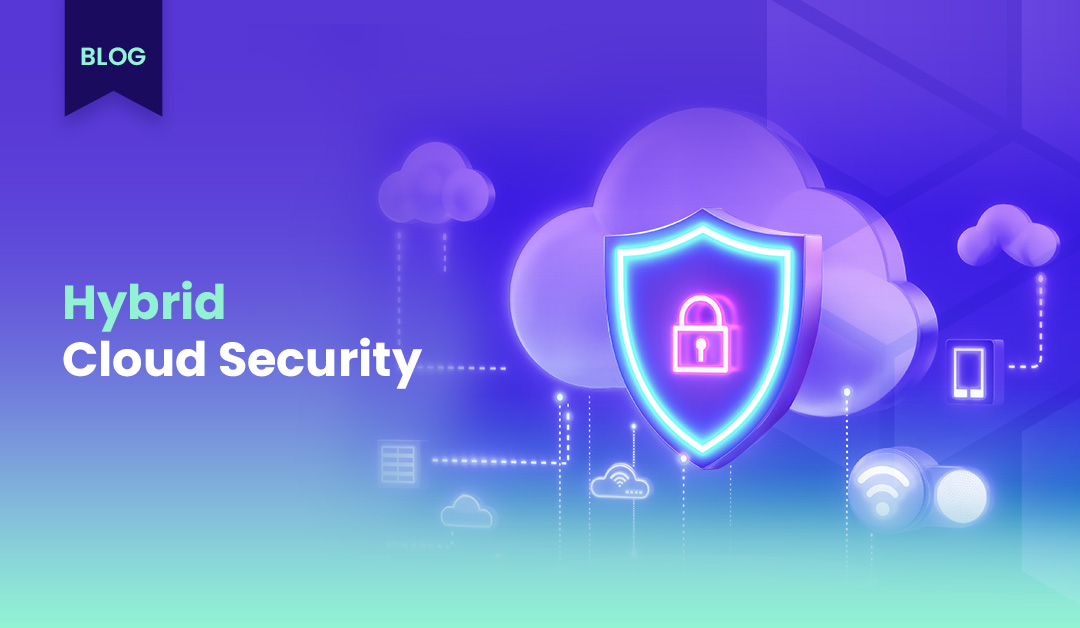Introduction to Hybrid Cloud Security
With the advent of the digital age, businesses are increasingly turning to hybrid cloud environments to enhance their flexibility, efficiency, and scalability. Hybrid cloud security, therefore, plays a crucial role in ensuring that data and applications across multiple cloud environments and on-premises infrastructures are protected against potential threats and vulnerabilities. How Does Hybrid Cloud Work? […]
Author
Date
Category
All Categories
- AI-powered security
- Attacks & Threats
- Cybersecurity
- Hybrid Cloud
- Network
- Network Firewall
- Network Protection
- News
- Remote Workforce
- Security
- Zero Trust
Contents
Popular Posts
Product
Join the Newsletter

With the advent of the digital age, businesses are increasingly turning to hybrid cloud environments to enhance their flexibility, efficiency, and scalability. Hybrid cloud security, therefore, plays a crucial role in ensuring that data and applications across multiple cloud environments and on-premises infrastructures are protected against potential threats and vulnerabilities.
How Does Hybrid Cloud Work?
A hybrid cloud combines private cloud, public cloud, and on-premises resources, allowing data and applications to be shared between them. This flexibility enables organizations to keep sensitive data on their private servers while leveraging the computational power of public clouds for less sensitive tasks, thus optimizing costs and performance.
What is Hybrid Cloud in Cybersecurity?
In the context of cybersecurity, hybrid cloud refers to the strategies, technologies, and policies used to protect data, applications, and infrastructures involved in a hybrid cloud setup. This involves securing a complex environment where on-premises systems and multiple cloud services interact.
Key Components of Hybrid Cloud Security
Key components of hybrid cloud security include:
- Identity and Access Management (IAM): Ensuring only authorized users can access certain data and applications.
- Data Encryption: Encrypting data at rest and in transit between various components of the hybrid cloud.
- Security Information and Event Management (SIEM): Providing real-time analysis of security alerts generated by network hardware and applications.
- Endpoint Security: Protecting endpoints that access the hybrid cloud from various locations to prevent breaches.
Best Practices for Hybrid Cloud Security
To effectively secure a hybrid cloud environment, organizations should:
- Implement uniform security policies across all cloud and on-premises environments.
- Use advanced threat detection and response solutions.
- Regularly update and patch systems to protect against vulnerabilities.
- Employ multi-factor authentication and strict access controls.
- Employ a zero-trust framework for network access, such as the Timus SASE solution, especially to protect users
How to Secure a Hybrid Cloud Environment?
Securing a hybrid cloud environment involves:
- Continuously monitoring and managing security across all platforms.
- Integrating security practices that cover both on-premises and cloud-based infrastructure.
- Adopting a zero-trust security model to ensure data integrity and confidentiality.
What is an Example of Hybrid Cloud Security?
An example of hybrid cloud security in action is a financial services firm using on-premises servers to store sensitive customer data while utilizing public cloud resources for customer-facing applications. The firm uses encrypted tunnels for data transfer and IAM tools together with zero trust network access, such as the one offered by Timus Networks, to control access.
What are the Security Benefits of Hybrid Cloud?
Security benefits of the hybrid cloud include:
- Improved disaster recovery and data redundancy.
- Enhanced flexibility in applying security controls where they are most needed.
- Ability to scale security measures in response to dynamic workloads.
What are the Pros and Cons of Hybrid Cloud Security?
Pros:
- Flexibility to apply tailored security measures.
- Cost-effectiveness in managing vast amounts of data.
- Enhanced scalability and resource optimization.
Cons:
- Increased complexity in managing security across multiple platforms.
- Potential for inconsistent security policies and procedures.
- Challenges in achieving regulatory compliance across different environments.
Technical Controls for Hybrid Cloud Security
Technical controls necessary for hybrid cloud security encompass:
- Advanced firewalls and intrusion detection/prevention systems.
- Unified security management platforms that provide visibility across all environments.
- Automated security tools that facilitate rapid response to incidents.
Network Security in Hybrid Cloud
In a hybrid cloud setup, network security involves:
- Segregating network resources to prevent lateral movement of threats.
- Implementing robust encryption protocols for data transmission.
- Using software-defined networking (SDN) to enhance network flexibility and control.
Conclusion
Hybrid cloud security is an essential aspect of modern IT strategies, requiring a comprehensive and integrated approach to protect against sophisticated cyber threats. By understanding the components, best practices, and challenges involved, organizations can effectively secure their hybrid cloud environments, ensuring resilience and compliance in the digital landscape.
FAQ
A hybrid cloud is an IT architecture that incorporates a mix of on-premises, private cloud, and public cloud services with orchestration between the platforms. This setup allows businesses to leverage the benefits of both private and public environments by facilitating greater flexibility and optimization of existing infrastructure. Hybrid cloud enables organizations to keep sensitive or critical workloads on private clouds or on-premises while using public clouds for less sensitive tasks or where high scalability is required. It is particularly useful for dynamic or highly changeable workloads.
The main difference between cloud (often referred to as public cloud) and hybrid cloud is that a public cloud is a fully cloud-based environment where all hardware, software, and other supporting infrastructure is owned and managed by the cloud provider, accessed over the internet. Hybrid cloud, on the other hand, combines public cloud services with private clouds and/or on-premise resources, typically connected through some form of integration or orchestration. This allows organizations to optimize their clouds for specific tasks, privacy needs, or regulatory requirements.
The security of private versus hybrid cloud depends largely on the specific implementation and management practices. Private clouds can offer more controlled environments with potentially higher security, as they are dedicated to a single organization with no shared resources, which can limit exposure to external threats. However, hybrid clouds can also be highly secure if they are properly managed with consistent security policies, advanced encryption, and strict access controls across all platforms. Thus, the security level of a hybrid cloud can match or even exceed that of a private cloud, depending on the security measures implemented.
Get Started with Timus
Zero Trust. Adaptive Cloud Firewall. Secure Remote Access. In one.
